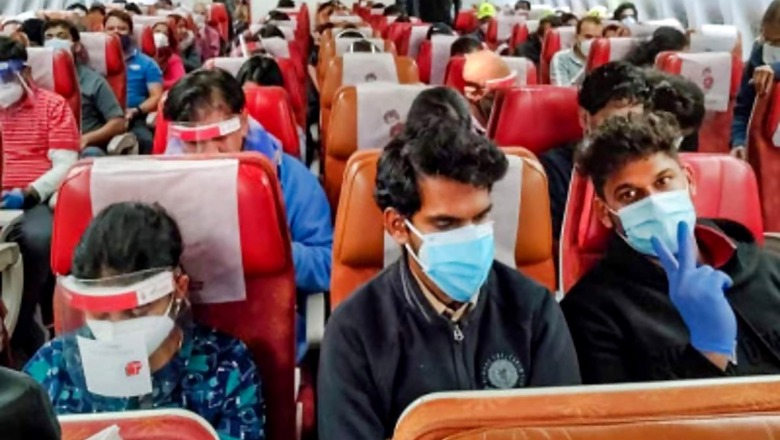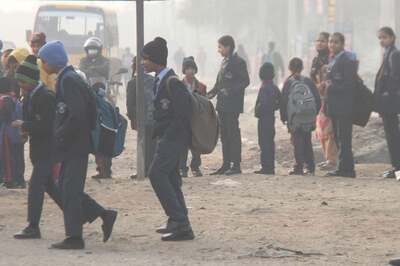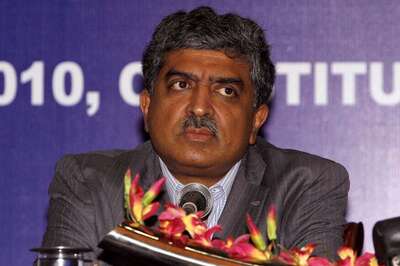
views
Indian missions in Arab Gulf countries should record the wage grievances of Indian workers leaving due to the Covid-19 outbreak as documentation is vital in addressing the wage theft issue, said MP and former state Minister at the Ministry of External Affairs Shashi Tharoor.
“I will write to the Minister of External Affairs S Jaishankar to set up a platform at Indian missions where the workers' grievances, especially on the wage front, can be recorded,” said Tharoor at an online panel discussion jointly organised by the Manila-based Migrant Forum in Asia (MFA), Delhi-based Global Research Forum on Diaspora and Transnationalism (GRFDT), and Beirut-based Regional Center for Refugees and Migrants (CCRM).
Tharoor said there is currently no mechanism available globally to address the wage theft issue and ensure justice for the migrant worker.
ESCROW fund
However, Tharoor suggested that an ESCROW fund where six months of wages can be deposited by the employer should be set up when the visa is approved for the worker.
“This ESCROW fund can help to pay the worker when pay default happens, especially when Covid-like crisis happens,” said Tharoor, adding that the pandemic outbreak has become an excuse for the employers in the Gulf to remove migrant workers without clearing their unpaid wages and end of service benefits.
Tharoor said that considering the limitations of mission houses, countries of origin should put pressure on countries of destination to ensure justice for the migrant workers, and to fight against the wage theft, civil society organisations should take a lead in organising trade unions.
Wage theft, the practice of employers failing to pay workers the full wages to which they are legally entitled, is a widespread and deep-rooted problem that directly harms millions of Asian migrant workers each year.
Employers refusing to pay promised wages, paying less than legally mandated minimums, failing to pay for all hours worked, or not paying overtime premiums deprives working people of billions of dollars annually. It leaves hundreds of thousands of affected workers and their families in poverty.
Unfortunately, countries of destination and origin have begun repatriation procedures of these workers, without any proper redress mechanism, since courts and other labour dispute mechanisms have also been closed during the period of the lockdown.
Therefore, these violations are piling up and either not be addressed or overburdening the existing dispute resolution mechanisms.
The stranded worker will get a call from the mission house giving him some 48 hours maximum to purchase a return ticket. The companies often clear the migrant workers’ papers only after the worker gets a travel confirmation call from the embassy is received. Eventually, the worker won’t have ample time to register his grievances if there are any.
India started evacuating Indians from Covid-hit countries since May 6. And from then, till July 16, Air India group has evacuated 2,15,495 Indians. Meanwhile, Indian private carriers evacuated 12,258 Indians and private charters evacuated 1,35,000. In addition to this, foreign charters evacuated 2,11,361 Indians. In all, some 687,000 Indians were flown into India from Covid-hit countries.
There are around 35 million migrant workers in the Arab Gulf countries who work under Kafala system, a peculiar employer-employee contract which restricts many rights and freedom of migrant workers. Out of this number, nearly 10 million are Indians.
Claims Commission
Meanwhile, detailing wage theft and justice mechanism, Roula Hamati, coordinator of the Cross Regional Center for Refugees and Migrants, said the pandemic has made wage theft a normal thing in all sectors and only a few goes to courts.
“We can’t continue like this. Numbers should not be a criterion in taking up this issue. We should set up an International Claims Commission to deal with the wage theft issue,” Roula said.
Roula said the International Claims Commission must be set up as a specialised international quasi-legal body of expedited justice to adjudicate on claims of migrant workers on an expedited basis in cases related to wage theft and other outstanding claims and to provide equitable remedies.
“Cases could be received directly from migrants themselves or through entities providing support or legal representation to migrants. All pre-existing case documentations should be referred to the Claims Commissions for resolution,” Roula said, adding that the International Claims Commission could be administered jointly by International Labour Organisation and International Organisation for Migration, together with other relevant stakeholders.
The latest ILO estimates show that working hour losses have worsened during the first half of 2020, reflecting the deteriorating situation in recent weeks, especially in developing countries.
The ILO report reveals that during the first quarter of the year, an estimated 5.4 per cent of global working hours (equivalent to 155 million full-time jobs) were lost relative to the fourth quarter of 2019.
“Working hour losses for the second quarter of 2020 relative to the last quarter of 2019 are estimated to reach 14.0 per cent worldwide (equivalent to 400 million full-time jobs),” the report adds.
Remittance Dip Vs Wage Theft
Shahidul Haque, former Bangladesh Foreign Secretary, said the discussion on making rights as an entitlement for migrant workers only can resolve the issues.
“So far, we discussed how to govern migration. But we missed the rights angle. We should not repeat that. Additionally, we should force the countries to honour global compact on migration even if it’s a non-binding one. As they (countries) have signed it, they should honour it,” he said.
While detailing the woes of Bangladeshi workers who returned penniless due to job loss from Covid-hit countries, he also endorsed the need of setting up an international claims commission to address the wage theft. Haque said close to 500,000 Bangladeshis have returned jobless from Covid-hit countries.
Responding to a query raised by moderator William Gois, Regional coordinator of MFA on wage theft and remittance, Dilip Ratha, Lead Economist at the Migration and Remittances and head of KNOMAD, World Bank, said wage theft is a significant factor in impacting in remittance.
“Due to the pandemic, a 20 per cent remittance dip is forecast. And in this 20 per cent remittance dip wage theft has a significant role,” he said.
India had received some $80 billion as remittance during the last year.
While Ryszard Cholewinski, Senior Migration Specialist at ILO Regional Office for Arab States, Beirut, said the body can look into the possibilities of setting up a Claims Commission if trade unions and CSOs come forward, Neha Mishra, Senior Migration Specialist from Solidarity Center, said lack of freedom of association for migrant workers is leading to wage theft.
Some 450 migration experts, academicians and rights activist attended the online meeting from different parts of the world.




















Comments
0 comment